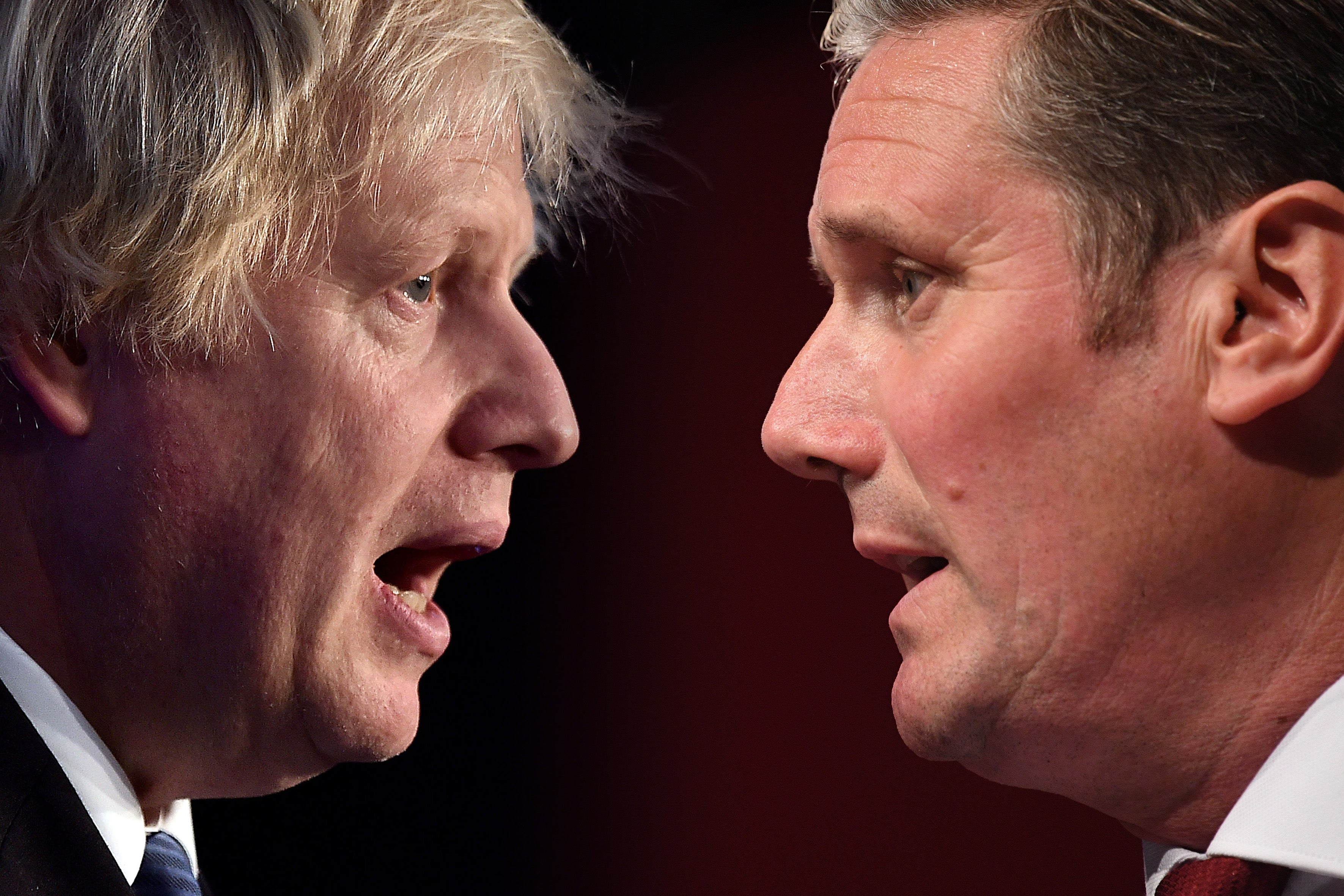Boris Johnson makes Keir Starmer look like a serious man for serious times
The public, Tory voters included, are increasingly critical of the government’s economic record, writes Andrew Grice


Rishi Sunak impressed business figures as he worked the room at a £4,000-per-table gala dinner on Monday during the Conservative Party’s Manchester conference. “What can I do for you? Tell me what you want,” the chancellor asked the diners. He took questions at each table – not making a quick escape, as Boris Johnson had done earlier when he spoke briefly at a business lunch without inviting questions.
Sunak acknowledged the concern over business rates, but politely invited his questioners to tell him how else he could raise £30bn a year. When they suggested a property revaluation, he said that would be opposed by 50 per cent of businesses. “He is a class act. He really engaged and was completely on top of the detail,” one company boss told me, not needing to make the contrast with Johnson. “Rishi is very good at the personal stuff – even better than Blair.”
Although guests left the dinner reassured, Johnson was to spoil the party by repeatedly blaming business’s addiction to cheap foreign labour for recent shortages in shops and petrol stations. The prime minister’s solution – telling companies to raise wages to attract more British workers – was clever politics, but at the end of the week, some senior Tories are jittery about his rift with business.
Johnson’s back-of-an-envelope policy resuscitated his dividing lines with Labour on Brexit and immigration, which he knows Keir Starmer does not want to talk about. But Johnson’s new mantra does not amount to a serious economic policy; it was noticeable that Sunak didn’t mention it in his conference speech. Some Tory MPs admitted privately that wage rises would not automatically boost productivity, and noted that, in a wage/price spiral, people would feel worse off if pay were outstripped by higher prices. “Boris would not pass economics O-level,” one told me. Perhaps Johnson should have read PPE at Oxford instead of classics.
Business leaders are furious with the prime minister. They were already bruised by the announcement of increases in corporation tax and national insurance contributions. They suspect – rightly – that his latest move is designed to distract attention from the government’s lack of planning for the end of free movement, and believe that this is the real cause, along with the pandemic, of supply-chain problems.
Does the row matter? Yes. Although employers don’t have a bloc vote, their views count. They influence voters, including their own workers, and many voters won’t buy Johnson’s attempt to portray them to everyone as the bogeymen.
The dispute also matters because Labour is back in the game. Several prominent business leaders, relieved that the Corbyn era is over, held positive talks, in the margins of Labour’s conference, with Rachel Reeves, the shadow chancellor, who promised the eventual abolition of business rates.
Craig Beaumont, head of external relations at the Federation of Small Businesses, told Times Radio: “Looking at this party conference season, there was one party of the two that came out with a pro-small business policy.” Starmer is right to detect a much-needed opening. On Friday, he recalled Johnson’s “F*** business” remark, saying: “The prime minister is actively putting into practice his infamous dismissal of business made three years ago.”
The public (Tory voters included) are increasingly critical of the government’s economic record. According to YouGov, Labour has drawn level with the Tories as the best party to handle taxation, and more people expect taxes to rise under the Tories than expect them to under Labour. But Labour still has much work to do: 29 per cent say the Tories are the best party to handle the economy, and only 19 per cent Labour.
Opinium found that voters preferred Starmer’s conference speech (5.9 out of 10) to Johnson’s (4.7), but the prime minister’s landed well with 2019 Tory voters, and Labour will be disappointed that the Tories’ overall poll lead has not yet been eroded.
Some Labour insiders smell danger in Johnson’s other desired dividing line: between his optimism and Labour’s pessimism. It is impossible for Labour to oppose higher wages, or £36bn extra for health and social care, as Johnson extends his raid into Labour’s natural territory, leaving no room in the centre ground and hoping to drive his opponent towards the left. The lesson of the conference season for Labour: don’t fall into the trap of saying everything is terrible and appearing to run the country down, which only plays into Johnson’s hands. Starmer tried to paint a positive vision for a different country in his conference speech, but this will be harder to do when Labour reacts to what will likely be a daily diet of bad news this winter.
Johnson chose to speak mainly to his party rather than to try to reassure the country about the hard times ahead. His jokes will wear thin when the cost-of-living crisis bites, as it will. The cheers in his party will fade when the polls shift, as they will.
The lesson for Johnson is that unless he addresses the country’s problems head-on, instead of suggesting they are nothing to do with him, he will amplify Starmer’s pitch as a serious man for serious times.






Join our commenting forum
Join thought-provoking conversations, follow other Independent readers and see their replies
Comments